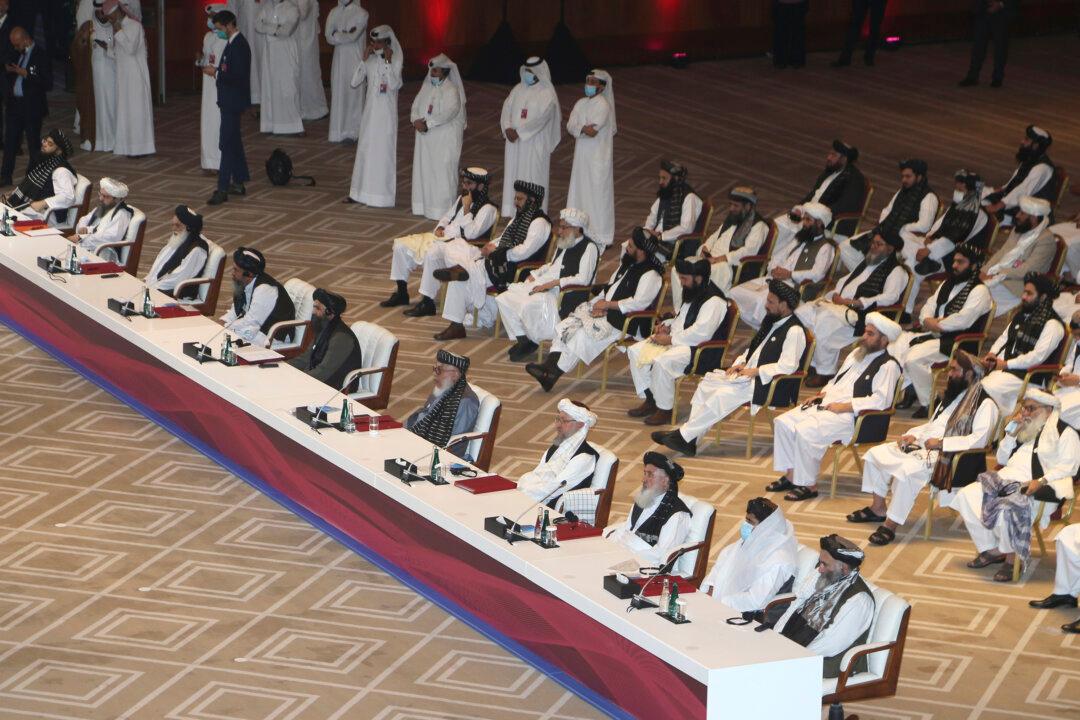Afghanistan’s warring sides started negotiations for the first time, bringing together the Taliban and delegates appointed by the Afghan government Saturday for historic meetings aimed at ending decades of war that has killed tens of thousands of combatants and civilians.
U.S. Secretary of State Mike Pompeo attended the opening ceremony in Qatar, where the meetings are taking place and where the Taliban maintain a political office.





